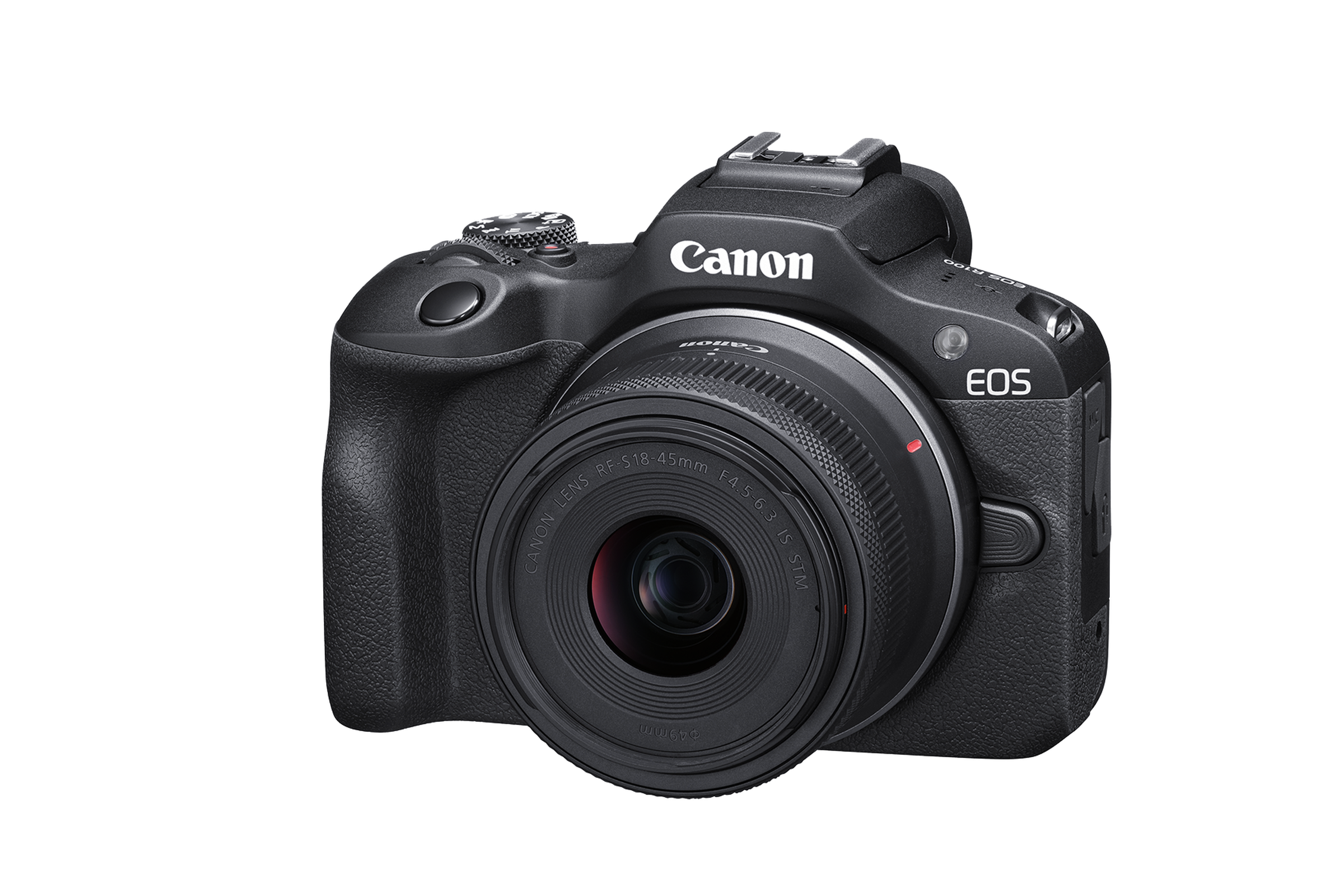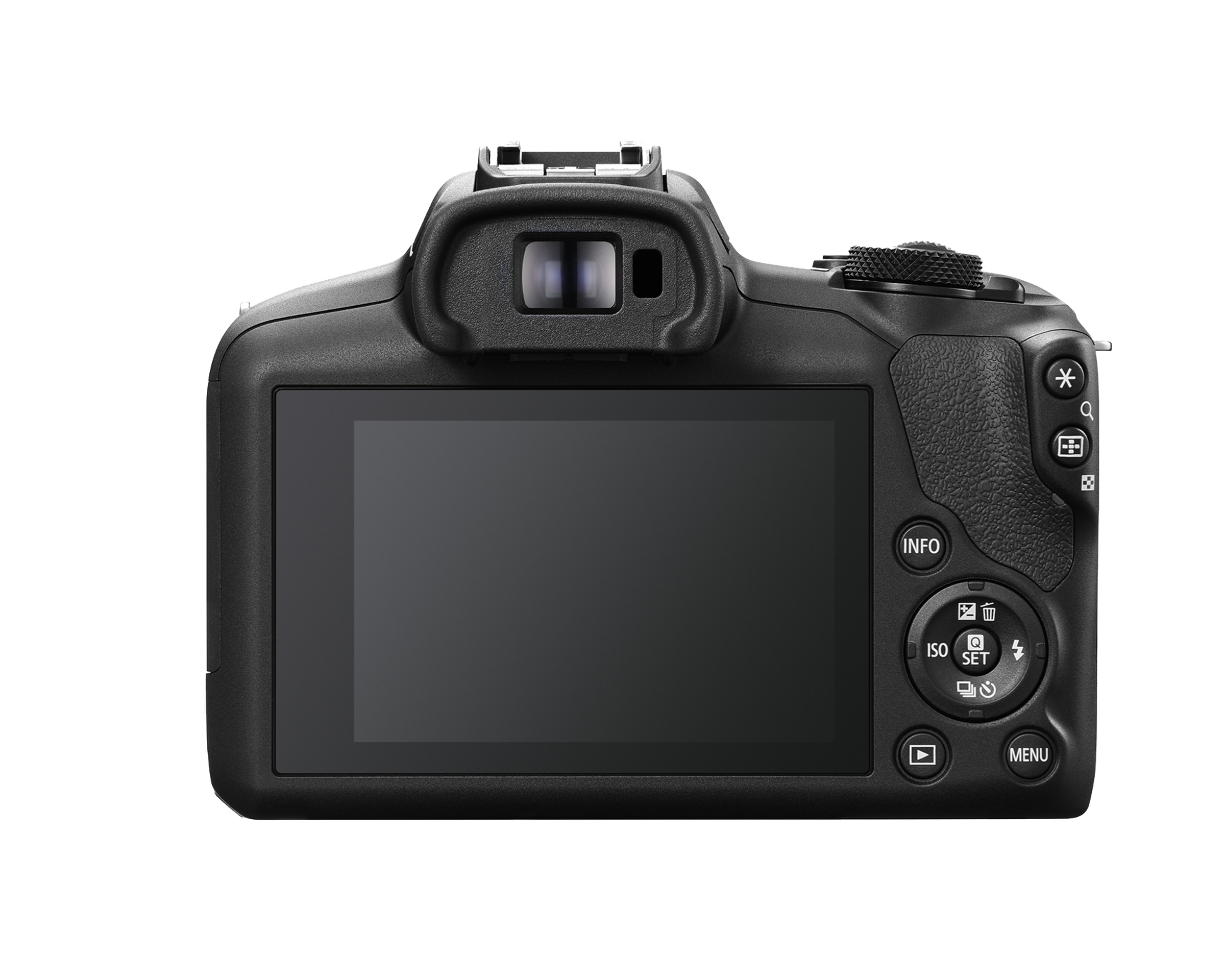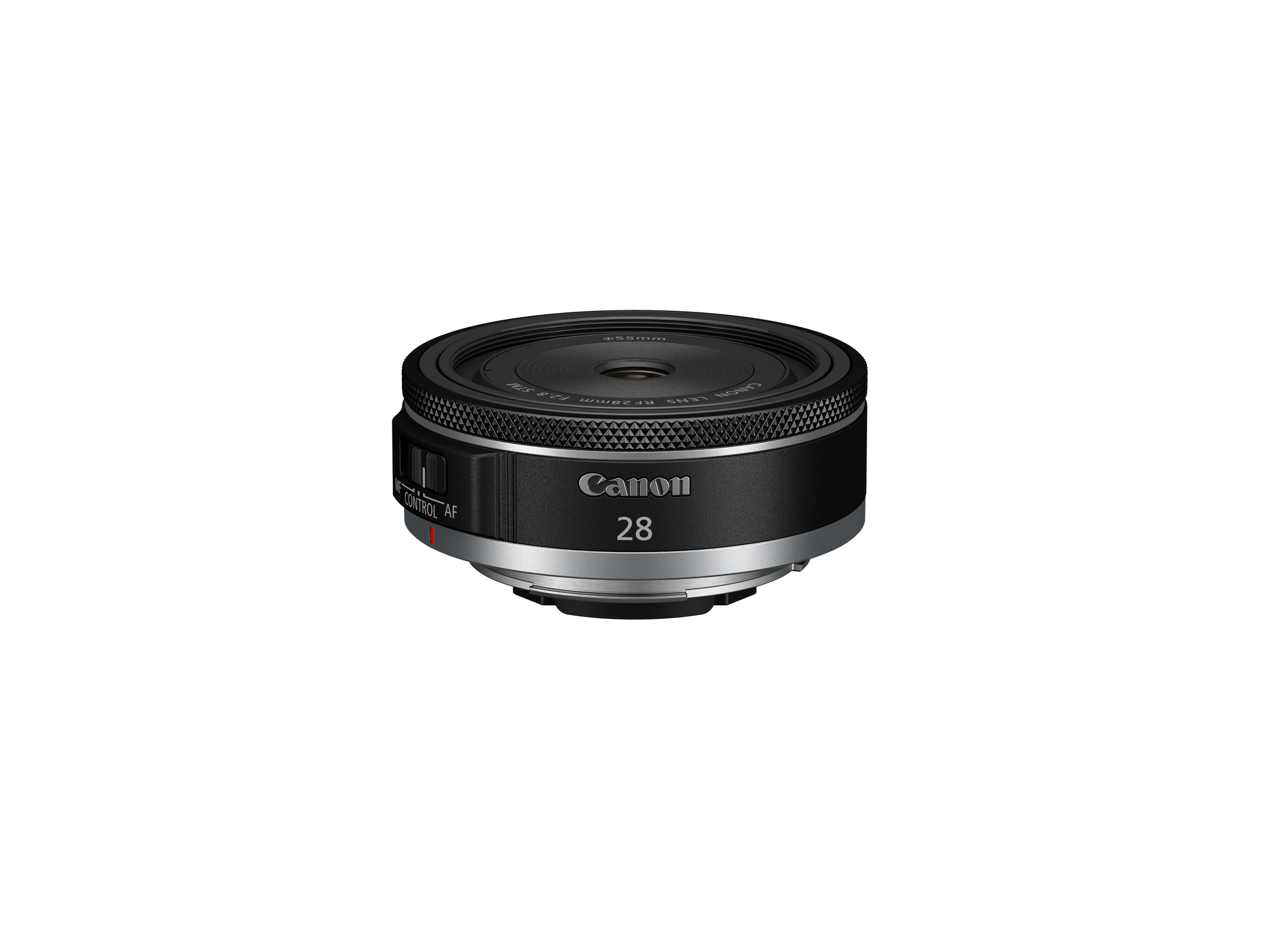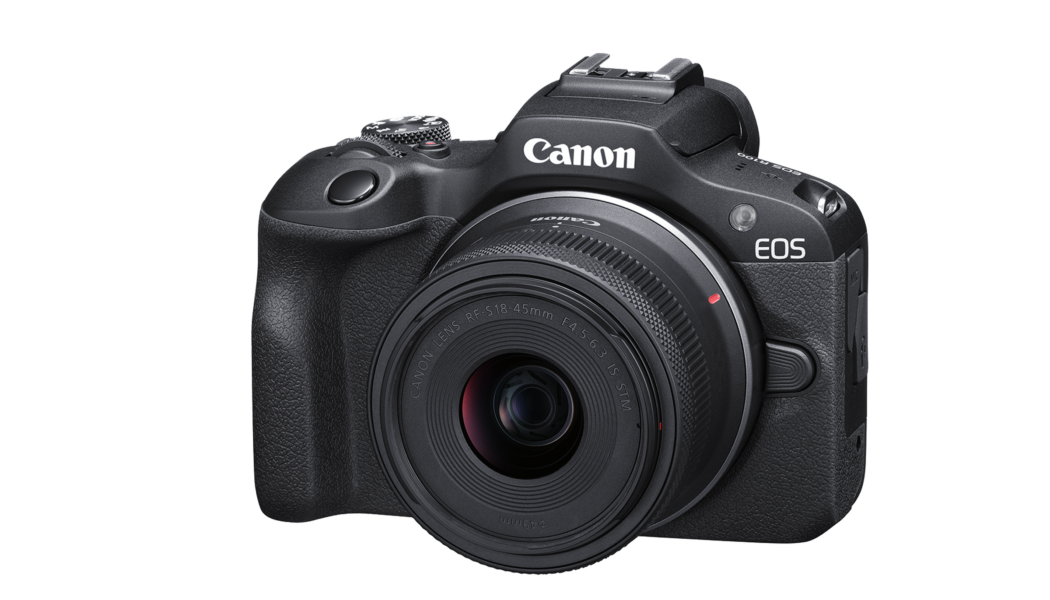The new entry-level EOS R100 is a parts-bin throwback to the Digital Rebel days, offering a 24.1-megapixel APS-C sensor, access to RF lenses, and a screen you can’t touch.
Share this story

The Canon EOS M mirrorless system may be dead, but one of its cameras is being exhumed and reincarnated into a new model for the ongoing EOS R series. The EOS R100 is the latest of Canon’s APS-C mirrorless offerings. It features a 24.1-megapixel sensor, eye-tracking dual pixel autofocus, and a very compact size for $479.99 body-only, launching in July. It will also be sold for $599.99 in a kit with the RF-S 18–45mm f/4.5-6.3 IS STM lens or $829.99 in a two-zoom kit with that same slow lens plus an RF-S 55–210mm f/5-7.1 IS STM telephoto. Launching alongside the R100 is a Canon RF 28mm f/2.8 STM pancake lens for $299.99 that’s compatible with crop or full-frame cameras and only a bit larger than a body cap.
On paper, the R100 is almost a dead ringer for the, well, dead Canon EOS M50 Mark II. It’s got the same sensor, Digic 8 processor, 2.36 million dot OLED EVF, and cropped 4K video as that swan song of the EOS M system did. But it’s also missing some key things from that camera — things you normally expect in every modern camera, frankly — like an articulating screen, in-body image stabilization, webcam streaming, or any touch controls. That’s right, touch the R100’s three-inch rear LCD all you want, but it ain’t doing a thing.


This is certainly scraping the bottom of the barrel for budget-system cameras and looking a little paltry compared to the more capable EOS R50 that sits above at $679.99. But to be fair, the 2.5-year-old M50 Mark II that the R100 is based on had a starting price of almost $800 (which maybe speaks to why that system is dead), and for around that much money, you can get this new model in a kit with two lenses. I’m not going to say those are good lenses or that it’s worth the money, but there’s something naively charming about Canon trying to relive its glory days of its Canon Rebel DSLRs — a time when an entry-level DSLR was a no-brainer investment for anyone looking to get into photography or just take some decent pictures of family or major life events.
But while this camera gives me a touch of nostalgia for the days of selling whatever the current Rebel of the moment was to expecting parents and college grads, the world of cameras is now a very different place. Sure, this sub-$500 camera has an autofocus system that far outclasses anything on the market from those days, but sacrificing an articulating screen and many other features that have become table stakes is likely a deal-breaker for someone trying their hand at content creation today.


Perhaps the EOS R100 can thrive just fine on its aggressive price alone, hoping to hook beginners into a growing RF lens ecosystem that keeps them upgrading within the Canon family. But users may not love what they see price-wise when they look up the line because, in addition to entry-level user behavior changing over these years, midrange to top-tier cameras and lenses have only trended more niche and expensive.









